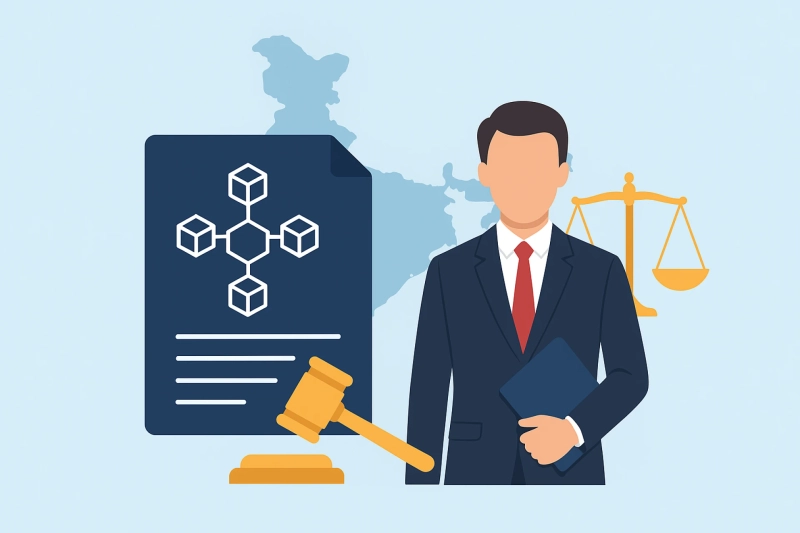A blockchain lawyer in India is essential for navigating the fast-evolving world of decentralised technology, cryptocurrency transactions, and digital asset regulations. As blockchain adoption expands across industries, the legal challenges surrounding compliance, security, and dispute resolution are becoming more complex. Seeking expert legal counsel ensures that your business or investment complies with the law while remaining agile in a highly competitive space.
Understanding Blockchain Law in India
Blockchain technology offers transparency, security, and efficiency. However, its application in financial systems, supply chains, and other sectors is subject to multiple regulatory frameworks. The Indian government and regulatory bodies, such as the Reserve Bank of India (RBI) and the Financial Intelligence Unit (FIU-IND), have been actively shaping policies to address risks like fraud, money laundering, and market manipulation.
A blockchain attorney in India provides strategic guidance on issues such as:
Compliance with anti-money laundering (AML) and know-your-customer (KYC) norms
Drafting and reviewing smart contracts
Advising on cryptocurrency taxation
Structuring token offerings
Protecting intellectual property in blockchain-based projects
Key Legal Challenges in the Blockchain Sector
While blockchain creates opportunities, it also poses significant legal hurdles:
Regulatory Uncertainty – Rules governing cryptocurrencies and decentralised platforms are still evolving in India.
Cross-Border Transactions – Blockchain often involves international operations, triggering multiple jurisdictions.
Smart Contract Disputes – Code-based agreements still require legal interpretation in certain disputes.
Data Privacy Concerns – Blockchain’s immutability can conflict with data protection laws.
Addressing these challenges requires a legal team with both technical understanding and legal expertise.
Why Specialised Legal Representation Matters
Engaging a lawyer who understands blockchain technology ensures that your project is not only innovative but also legally sound. An experienced blockchain attorney in India can:
Anticipate regulatory changes and adapt strategies accordingly
Identify risks in tokenomics, project structures, and contract terms
Assist in obtaining necessary licences and registrations
Defend your rights in case of disputes or regulatory investigations
Our Approach to Blockchain Legal Services
Our legal process is structured around:
Comprehensive Risk Assessment – Identifying compliance gaps before they cause problems.
Customised Solutions – Tailoring contracts, policies, and structures to your specific use case.
Proactive Compliance Management – Staying ahead of legal changes to ensure uninterrupted operations.
Litigation and Dispute Resolution – Representing clients in high-stakes blockchain-related disputes.
Who We Serve
We provide legal counsel to:
Startups launching blockchain-based platforms
Investors participating in token sales
Established companies integrating blockchain into operations
Developers creating decentralised applications (dApps)
Fintech firms and cryptocurrency exchanges
Contact Us
If you are entering the blockchain space or need advice on ongoing operations, our team offers strategic guidance and strong legal advocacy.
📧 Email: admin@vidhisastras.com
📞 Call: +91 73037 27900
FAQs – Blockchain Law in India
1. Is cryptocurrency legal in India?
Cryptocurrency is not banned in India, but it is regulated under specific tax and compliance rules. It is essential to meet reporting obligations.
2. Do I need a licence to start a blockchain business in India?
Depending on your business model, you may need to comply with RBI, SEBI, or FIU-IND guidelines. A legal consultation can clarify requirements.
3. Can smart contracts be enforced in Indian courts?
Yes, provided they meet the essential elements of a valid contract under Indian law.
4. How are blockchain transactions taxed?
Currently, cryptocurrencies are subject to a 30% tax on profits and 1% TDS on transactions, as per government guidelines.
5. Can a blockchain lawyer help with international projects?
Yes, an experienced blockchain attorney can navigate cross-border laws and ensure compliance in multiple jurisdictions.
6. What is the role of FIU-IND in blockchain regulation?
The Financial Intelligence Unit monitors AML and KYC compliance for entities dealing with digital assets.
Conclusion
Navigating blockchain law in India requires both technical insight and legal skill. By partnering with a trusted legal expert, you safeguard your business, ensure compliance, and enhance your operational resilience. For tailored blockchain legal services, contact Vidhiśāstras – Advocates & Solicitors.



